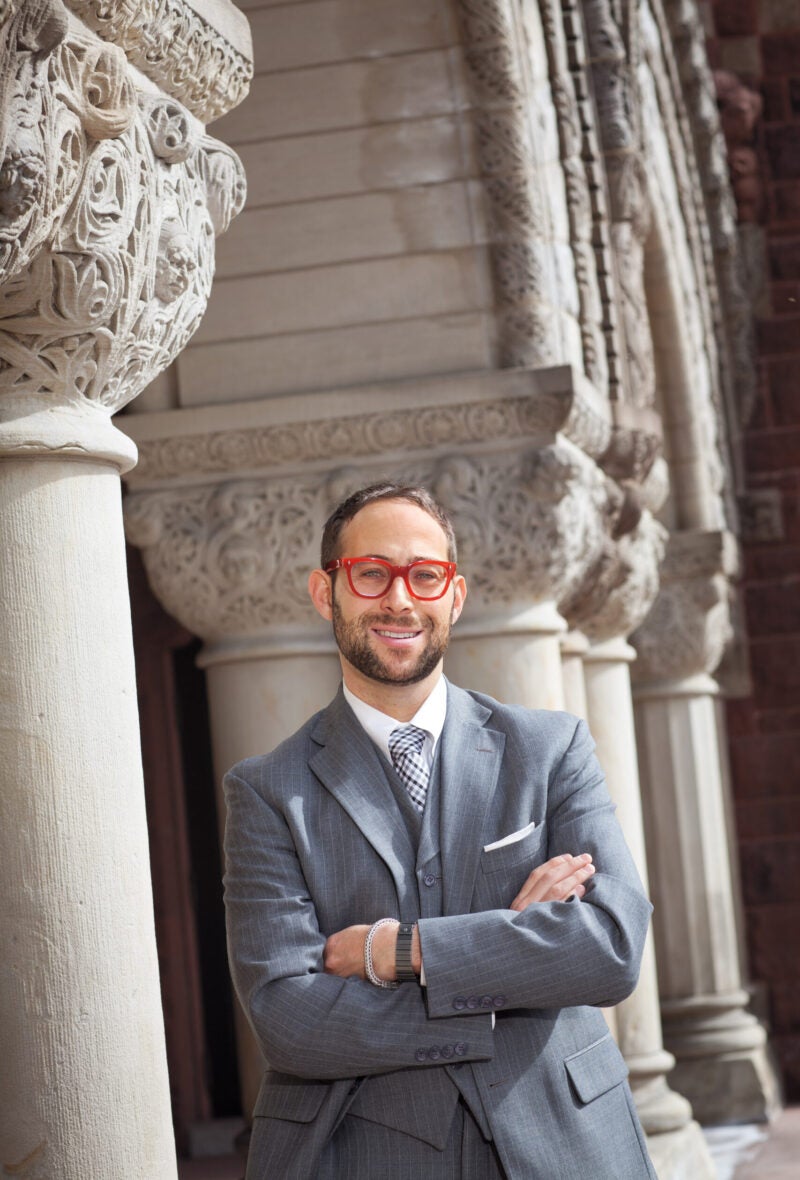Harvard Law School Professor Glenn Cohen, faculty director of the Petrie-Flom Center for Health Law Policy, Biotechnology and Bioethics, recently co-authored an article with George Q. Daley, dean of Harvard Medical School, and Eli Y. Adashi, professor of medical science and former dean of medicine and biological sciences at Brown University, for the journal Science Translational Medicine.
The article looks at legal and ethical considerations regarding in vitro gametogenesis (IVG), a new, experimental technique that allows scientists to grow embryos in a lab by reprograming adult cells to become sperm and egg cells.
The trio argue that, while IVG may unravel the fundamental mechanisms of genetic forms of infertility, perhaps paving the way to a range of new therapies, the technique also raises a number of legal and ethical questions that, according to the authors, society should address before IVG becomes ready for clinical use in human patients.
IVG holds enormous potential not only as a treatment for infertility, but also for a constellation of currently untreatable diseases, the authors write. Additionally, they note, the technique may provide an inexhaustible supply of lab-made embryonic stem cells for research and therapeutic use as an alternative to scarce human embryonic stem cells, which are currently in limited supply due to ethical considerations and regulatory restrictions.
Yet, the authors say, such promises come with some worrisome scientific, legal and ethical challenges, such as the need for rigorous scientific protocols to ensure that any reproductive cells created through IVG are free of genetic aberrations, the threat of improper commercialization of IVG for large-scale embryonic generation and the use of preimplantation genetic screening to create “designer” offspring.
The authors acknowledge that clinical uses of IVG in the foreseeable future remain improbable at best. The impact of IVG, they say, will likely be limited to enhancing the science of germ cell biology. Yet, they caution, some clinical uses may arrive much sooner than anticipated, given the breakneck speed at which science and medicine are advancing.
To prepare for that time, scientists, bioethicists, policymakers, legal scholars and the public should initiate and maintain a vigorous conversation about the implications of IVG.
“Emerging technologies carry enormous promise but can also be profoundly disruptive. Aligning their promise with ethical and legal considerations is an imperative not only for scientists but for the society as a whole,” said George Q. Daley, dean of Harvard Medical School. “To do so, we must initiate vital conversations early and engage the public. Nothing less will do on our quest to ensure that we strike the right balance between our most audacious scientific pursuits and our core ethical and legal principles.”
The authors go on to say that the United States might be wise to borrow a page from the U.K.’s playbook, where a protocol focused on safety, ethics and public consultation has recently led to the launch of government-sponsored clinical studies of mitochondrial replacement therapy, a lab-based procedure that replaces defective mitochondrial DNA in a woman’s egg cells with healthy DNA to avert passing the defects to her offspring.
“IVG has the potential to upend one of the most traditional elements of human culture—our understanding of what parenthood is and how it occurs,” says Cohen. “It is critical for law and medical ethics to grapple with the far-ranging implications of this new technology.”
Read the full article on the Science Translational Medicine website.
